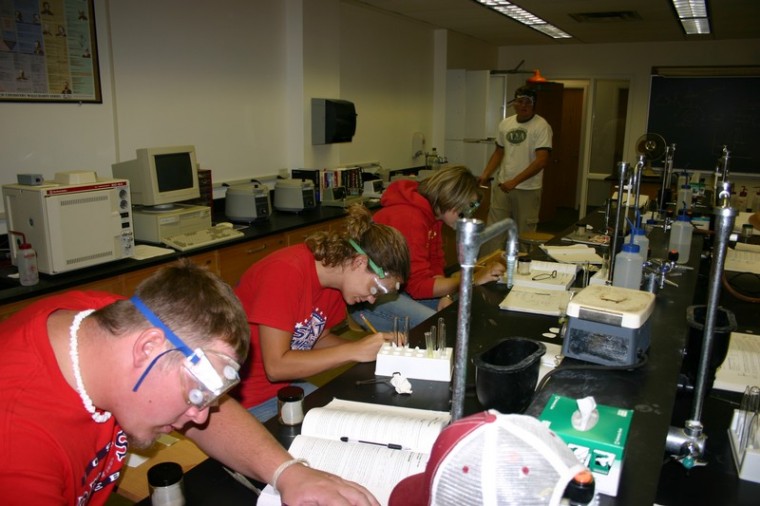Creepy, crawly things
October 28, 2004
Walking through wetlands, hunting for rattlesnakes, riding onhorseback and dissecting a human body: Those are just some of theactivities that students experience while taking classes in thescience department.
Steve Emerman, assistant professor of environmental science,said that hands-on learning is something he has always enjoyed.
“I have always taken my students on field trips,” Emerman said.”Field trips allow students to make the connection between theclassroom and real life.”
Emerman also said he wants his students to have fun while onfield trips.
“It is important to me that my students learn, have fun and beoutdoors,” Emerman said. “I want my students to be about to feel athome in the outdoors. People do not get outside a lot anymore so itis good to see my students getting outside and learning.”
Hands-on learning is something that has become typical oncampuses around the country for undergraduate students, Emermansaid.
“Twenty years ago, research and hands-on training were thingsthat only graduate students did,” Emerman said. “Simpson is in themiddle of the changes as far as undergraduate research in thiscountry. We are not the most up-to-date, but we are definitelyahead of other schools as far as our opportunities forundergraduate science students.”
Jeff Parmalee, assistant professor of biology, agreed withEmerman.
“I think the best way to learn is to be out there,” Parmaleesaid. “I try to take my students on as many field trips aspossible.”
Parmalee thinks that students can remember things easier if theyactually experience what is being taught in lectures in the realworld.
“There are just some things you cannot see in a lab classroom,”Parmalee said. “Seeing it in real life helps you learn. Also,students can retain information a lot easier if it is interestingto them. I try to bring in something related to lecture as much aspossible such as a frog or fern.”
Parmalee said that one of the best field trips he’s organizedwas when he took students to Australia for herpetology.
“The students and I were on a trip one night,” Parmalee said.”We were all in waders and had head lamps on. The sounds of thenight were deafening because it was dead silent except for all thefrogs. We could hear five different types of frogs that night. Weeven saw some mating and laying eggs. That is exactly what we wentout there to see and the sounds just made it wonderful.”
Junior Lindsay Saunders thinks the science departments’ fieldtrips are good experiences as well as effective learning tools.
“I believe that hands-on learning is a great tool for learningand gives students the opportunity to learn unique skills that theycould not learn in a lecture,” Saunders said.
Gaining skills that will help someone later in life isimportant, Saunders said. She added that the field trips can helpgain these skills.
“I am learning skills I plan on using the rest of my life as aresearch scientist,” Saunders said. “Also, having the opportunityto do independent research is wonderful.”












